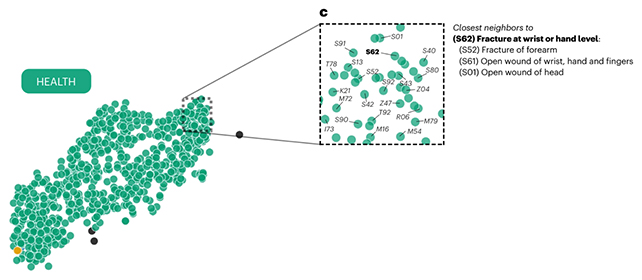
Envision sharing intricate details of your life with an AI – your profession, dietary patterns, that memorable incident of breaking an arm at age 4 – and witnessing its ability to forecast potential health risks tailored to individuals with similar lifestyles.
While it may seem like a scene from a sci-fi movie, recent research highlights the imminent reality of this technology. Upon closer consideration, the concept isn’t as daunting as it may initially sound.
Researchers have consistently linked our lifestyle choices – from daily habits to sleep patterns – to the likelihood of premature mortality or the onset of specific illnesses. With the assistance of AI, this wealth of existing data undergoes accelerated and more thorough analysis.
Collaborating with Northeastern University, the Technical University of Denmark, and the University of Copenhagen, Danish researchers harnessed the power of an AI engine trained on the information of six million individuals. They aimed to assess the viability of this type of predictive engine.

The researchers discovered that the training methods integral to Large Language Models (LLMs), which drive AI entities like ChatGPT, are equally applicable to modeling life events.
Rather than examining connections among words and sentences, the AI deduces the correlations between all occurrences in our daily lives.
The whole story of a human life, in a way, can also be thought of as a giant long sentence of the many things that can happen to a person,
says Sune Lehmann, a data scientist at the Technical University of Denmark.
This model offers a much more comprehensive reflection of the world as it’s lived by human beings than many other models.
Subjected to trials against established causes of mortality, the AI demonstrated superior predictive capabilities compared to current methodologies in determining the manner and timing of an individual’s demise. However, it’s crucial to note that certain events, such as car accidents, remain beyond the model’s ability to anticipate.
Additionally, the AI successfully forecasted specific personality traits, including extroversion.
Cutting-edge AI tools, such as this one, exhibit substantial promise in identifying intricate patterns that elude human perception. This holds the potential for enhancing our comprehension of the intricate connection between our lifestyles and our overall health and well-being.
Despite the notable achievements, the researchers emphasize a cautious approach. The data currently pertains exclusively to the Danish population, introducing inherent sociodemographic bias into the findings.
The team is advocating for the resolution of privacy and personal data apprehensions before considering the implementation of this technology in real-world scenarios.
Even though we’re using prediction to evaluate how good these models are, the tool shouldn’t be used for prediction on real people
, states computer scientist Tina Eliassi-Rad from Northeastern University.
It is a prediction model based on a specific data set of a specific population.
The findings are documented in Nature Computational Science.





